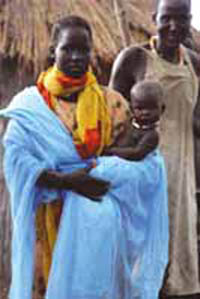Puerperal sepsis and fever
Puerperal sepsis refers to any widespread bacterial infection of the reproductive tract in a woman following childbirth. Some women are more vulnerable to puerperal sepsis, for example those who are anaemic and/or malnourished. Fever (raised body temperature) in a mother during the postnatal period is a general danger sign. She suddenly feels chills with shivering, followed by feeling hot and sweating. Fever in the postpartum period may be due to puerperal sepsis, but it can also be caused by:
- Urinary tract infection
- Wound infection
- Mastitis or breast abscess
- Infections not related to the pregnancy or delivery, such as HIV, malaria, typhoid, tetanus, meningitis, pneumonia, etc.
In the majority of cases, postnatal maternal infection is preventable either by conducting a clean and safe delivery, by immunizing all pregnant women against tetanus, and by providing timely treatment of pre-existing infections. In malaria endemic areas, do not forget to give long lasting insecticide-treated bed nets (ITNs) during your home visit, if they were not given before, and advise mothers on how to regularly and continuously use them. Make sure the mother and newborn are sleeping under a net every night.
